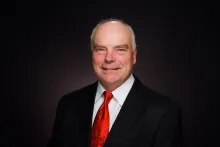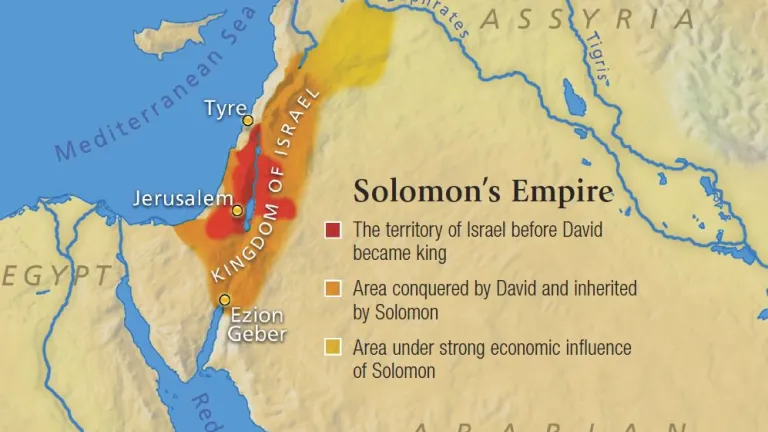Pentecost and the Mystery of the Ages

God the Father and Jesus Christ now dwell in the hearts of converted people. This is the great mystery of all time, understood by a few because it has to be revealed to a mind opened by God.
After being delivered from slavery in Egypt and crossing the Red Sea, the people of Israel wandered through the desert for five weeks following the pillar that led them. In the pillar was the God whose presence is so glorious and bright it would blind or kill any human, so it was covered in a cloud. Israel arrived at the base of Mt. Sinai as God had earlier directed Moses. According to Exodus 19:1, this was on the first day of the third month of the year: “In the third month after the children of Israel had gone out of the land of Egypt, on the same day [first day of the month], they came to the Wilderness of Sinai.”
God called Moses up to meet Him on the mountain and pronounced a summary of the covenant that Israel was to agree to: “‘Now therefore, if you will indeed obey My voice and keep My covenant, then you shall be a special treasure to Me above all people; for all the earth is Mine. And you shall be to Me a kingdom of priests and a holy nation.’ These are the words which you shall speak to the children of Israel” (Exodus 19:5-6).
Moses then relayed the message, and the people of Israel promised to do everything that God said. “So Moses came and called for the elders of the people, and laid before them all these words which the Lord commanded him. Then all the people answered together and said, ‘All that the Lord has spoken we will do.’ So Moses brought back the words of the people to the Lord" (Exodus 19:7-8).
Three days later would be the Day of Pentecost, the first time that events occurring on that day are recorded in Scripture. God told Moses to have the people prepare to hear His voice pronounce the words of the covenant. “And let them be ready for the third day. For on the third day the Lord will come down upon Mount Sinai in the sight of all the people” (Exodus 19:11).
On the third day all Israel gathered at the base of Mount Sinai, and their God descended on it glory and power. “And Moses brought the people out of the camp to meet with God, and they stood at the foot of the mountain. Now Mount Sinai was completely in smoke, because the Lord descended upon it in fire. Its smoke ascended like the smoke of a furnace, and the whole mountain quaked greatly. And when the blast of the trumpet sounded long and became louder and louder, Moses spoke, and God answered him by voice” (Exodus 19:17-19).
The Israelites heard the voice of God thunder the Ten Commandments and became so fearful they asked Moses to be their intercessor. Moses then went up the mountain to hear God for them and relayed the additional words of the covenant to them, and all Israel promised again they would obey and keep the covenant (Exodus 24:3). There were offerings given and blood sprinkled to signify the agreement (Exodus 24:6). Moses again read all the words of Exodus 20:1-23 to them, and Israel a third time promised to obey (Exodus 24:7).
Next, in what is likely a type of the coming wedding supper of Revelation 19:9, Moses, Aaron, Nadab, Abihu and 70 of the elders of Israel went part way up the mountain and shared a meal. The God of Israel appeared to them in a reduced power form, with the shining glory that surrounds Him appearing only under His feet (Exodus 24:10).
What was all this leading up to? What was the intent or purpose of all these incredible events?
The Purpose of the Tabernacle
The answer is given in Exodus 25:8: “And let them make Me a sanctuary, that I may dwell among them.” God clearly intended to dwell among the people of the covenant who were obeying Him and living according to His laws.
Moses knew the only way for Israel to be separate from the world was to have God dwelling among them.
After giving instructions for the tabernacle and priests, God added: “I will dwell among the children of Israel and will be their God. And they shall know that I am the Lord their God, who brought them up out of the land of Egypt, that I may dwell among them. I am the Lord their God” (Exodus 29:45-46).
Moses went up Mount Sinai to receive the Ten Commandments written on stone by the finger of God. While he was gone, terrible sin occurred. Moses was gone many days, and Israel convinced Aaron to make a golden calf. As a result of this sin, 3,000 men who were involved in the calf worship were killed by the Levites, and many more died in a plague (Exodus 32:28, 35). Moses had to pray for Israel so God would not punish them further.
As a consequence of worshipping the golden calf, God removed His presence from Israel. The tent of Moses served as a temporary tabernacle where Moses would meet with God, and God had Moses move the tent to a place outside the camp (Exodus 33:7). The people watched as Moses went out of the camp to meet with God and the pillar of cloud descended to that tent. It was a daily reminder that God no longer dwelt with them (Exodus 33:8-11).
Moses understood that Israel could not survive without God dwelling among them. After some days passed, Moses interceded with God on behalf of Israel. This was the third time he had to pray for them to survive. His incredible prayer is recorded for us in Exodus 33:12-16. Moses knew the only way for Israel to be separate from the world was to have God dwelling among them (Exodus 33:16). God honored Moses’ request and told Moses to hew two additional stone tablets for the Ten Commandments.
Moses again spent 40 days on Mount Sinai with the Lord. With his face shining, due to being in the presence of the glory of God, Moses came back to the camp of Israel. He brought with him the new Ten Commandment tablets and renewed the covenant with Israel (Exodus 34: 30-32). According to The Jewish Encyclopedia, Moses delivered the second set of commandments, and the covenant was renewed on the Day of Atonement (The Jewish Encyclopedia, 1906 Edition, Volume 2, page 281).
Work then began on building the tabernacle for the presence of the Lord to dwell in the middle of Israel. The tabernacle was finished on the first day of the second year (Exodus 40:17), and the glory of the Lord, demonstrating His presence, filled the Tabernacle (Exodus 40:34).
The Temple of Solomon in Jerusalem
More than 400 years later, King David wanted to build a temple for God in Jerusalem. God did not allow him to do so (1 Chronicles 22:7-8). After Solomon was established as King of Israel, he built the temple as a place for the Lord to dwell among the people of Israel. When the building was being completed, then the word of the Lord came to Solomon saying: “Concerning this temple which you are building, if you walk in My statutes, execute My judgments, keep all My commandments, and walk in them, then I will perform My word with you, which I spoke to your father David. And I will dwell among the children of Israel, and will not forsake My people Israel” (1 Kings 6:12-13). God still wanted to dwell among His people who were obeying Him. After Solomon’s heartfelt prayer for God’s mercy at the dedication of the temple, fire came down as the glory of God filled the temple and His presence dwelt there (2 Chronicles 7:1-3).
The glory of God stayed in the sanctuary of the temple until about the year 587 B.C. God cannot abide dwelling with sin and evil, and after many years of idol worship by Israel and Judah the Lord decided to no longer dwell in the temple. Ezekiel 10-11 record for us the glory of God leaving the temple and going to the Mount of Olives, from where it ascended back to heaven.
Babylon’s armies destroyed the temple, and the glory of God never again dwelt in a building. Even though a second temple was constructed later by Ezra and was then built into a magnificent building by Herod, the glory of God did not dwell in it. The Jews hoped it would return.
The Day of Pentecost, A.D. 31
Jesus Christ promised His disciples that He and the Father would come and dwell in them (John 14:17, 20, 23). That promise was fulfilled on the Day of Pentecost and recorded for us in Acts 2. “And suddenly there came a sound from heaven, as of a rushing mighty wind, and it filled the whole house where they were sitting. Then there appeared to them divided tongues, as of fire, and one sat upon each of them” (Acts 2:2). Those assembled there knew the glory of the Lord appeared “like fire” (Exodus 24:17) and was often accompanied by wind (Exodus 14:20-21).
Peter and the other disciples understood the Spirit of God was now being given to individuals (Acts 2:17) and that God was giving the Spirit to those who would obey Him (Acts 5:32). Not many days later Stephen told the Jewish Council this new profound truth: “The Most High does not dwell in temples made with hands” (Acts 7:48). They stoned him for saying that and showing that they were as guilty as their forefathers. The Jews of the first century, along with almost all of mankind since, never understood the mystery.
What Mystery?
God the Father and Jesus Christ now dwell in the hearts of converted people. This is the great mystery of all time, understood by a few because it has to be revealed to a mind opened by God.
Paul emphasized it several times. “The mystery which has been hidden from ages and from generations, but now has been revealed to His saints. To them God willed to make known what are the riches of the glory of this mystery among the Gentiles: which is Christ in you, the hope of glory” (Colossians 1: 26-27).
Our minds are now the temple where the Spirit of God lives and produces the fruit of a changed life. Our responsibility is to grow in grace and knowledge, aware that we are part of the spiritual temple God is building.
Think about Paul’s admonitions to the church in Corinth as we keep the Day of Pentecost: “For you are the temple of the living God. As God has said: ‘I will dwell in them and walk among them. I will be their God, and they shall be my people’” (2 Corinthians 6:16).






